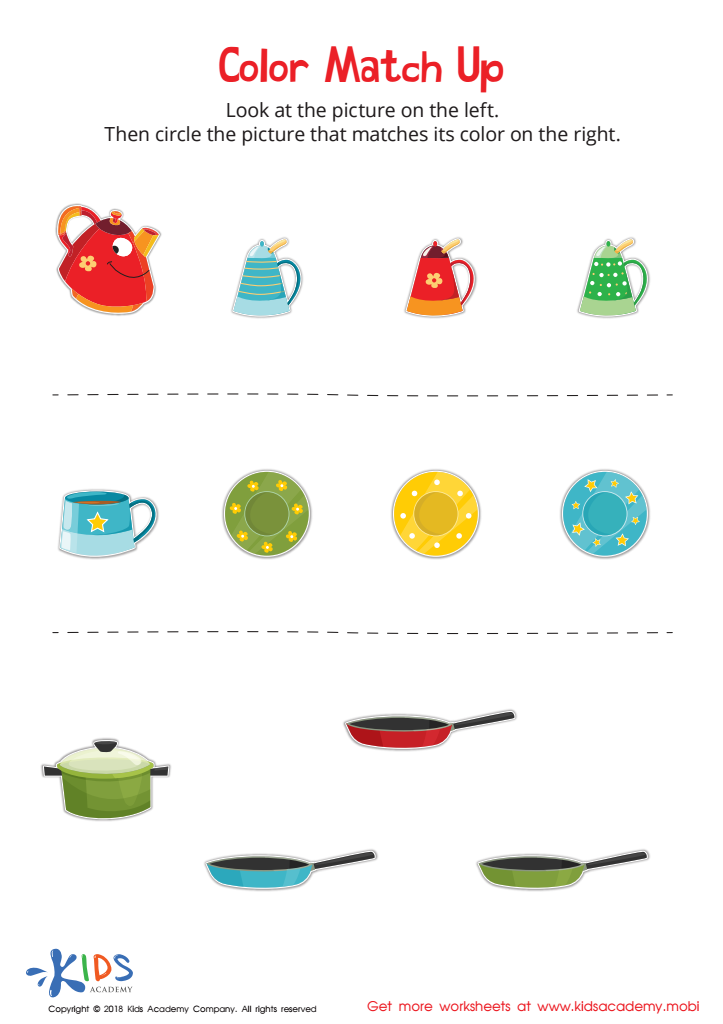Matching skills Normal Math Worksheets for Ages 5-8
9 filtered results
-
From - To
Discover our engaging Matching Skills Normal Math Worksheets, designed specifically for children aged 5-8. These worksheets enhance essential matching abilities through fun and interactive exercises that promote learning in a playful way. Perfect for home or classroom use, each worksheet encourages preschoolers and early learners to strengthen their cognitive skills while exploring numbers, shapes, and relationships. With colorful illustrations and a variety of activities, these worksheets make math enjoyable and effective. Support your child’s early education journey and foster a love for learning with our easy-to-use, printable resources tailored to develop their matching skills and confidence in mathematics.
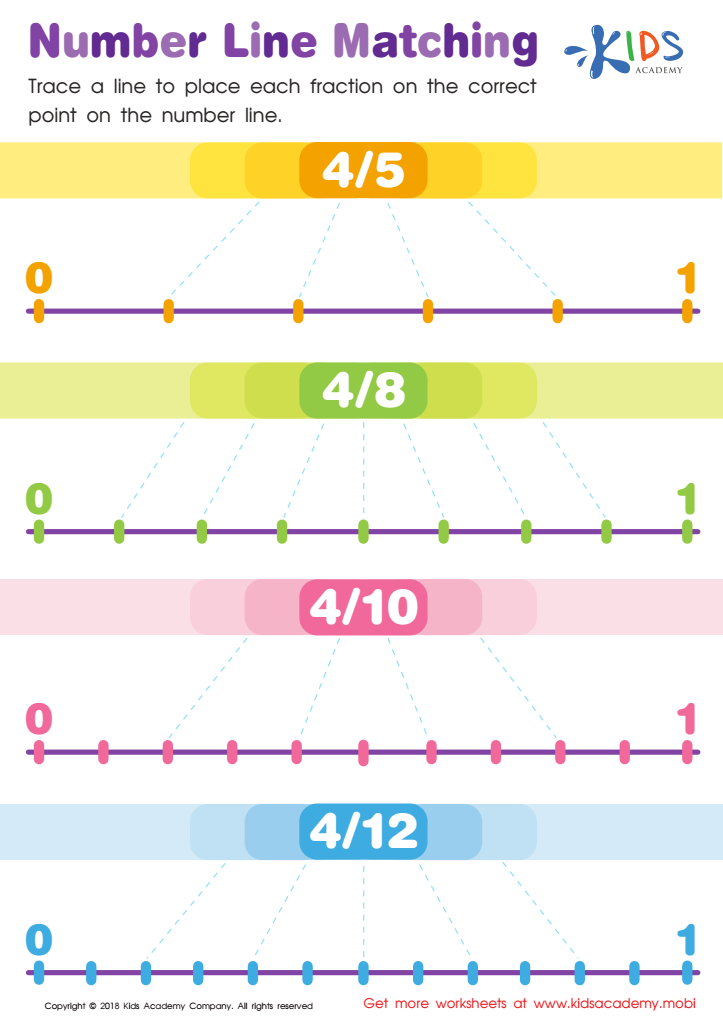

Number Line Matching Worksheet
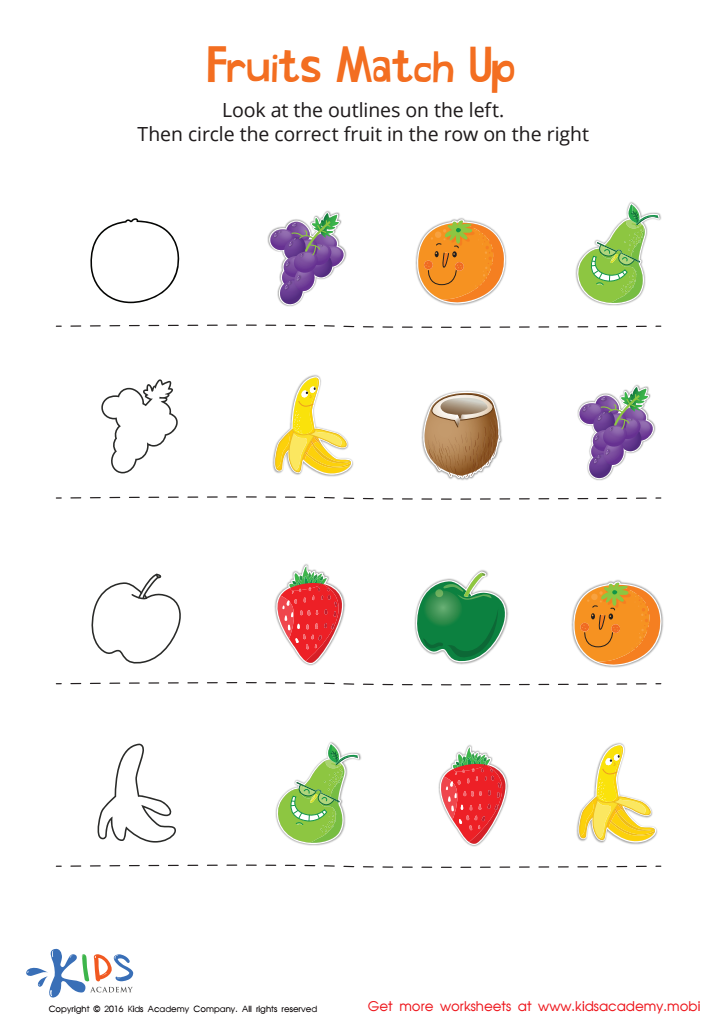

Fruits Match Up Worksheet
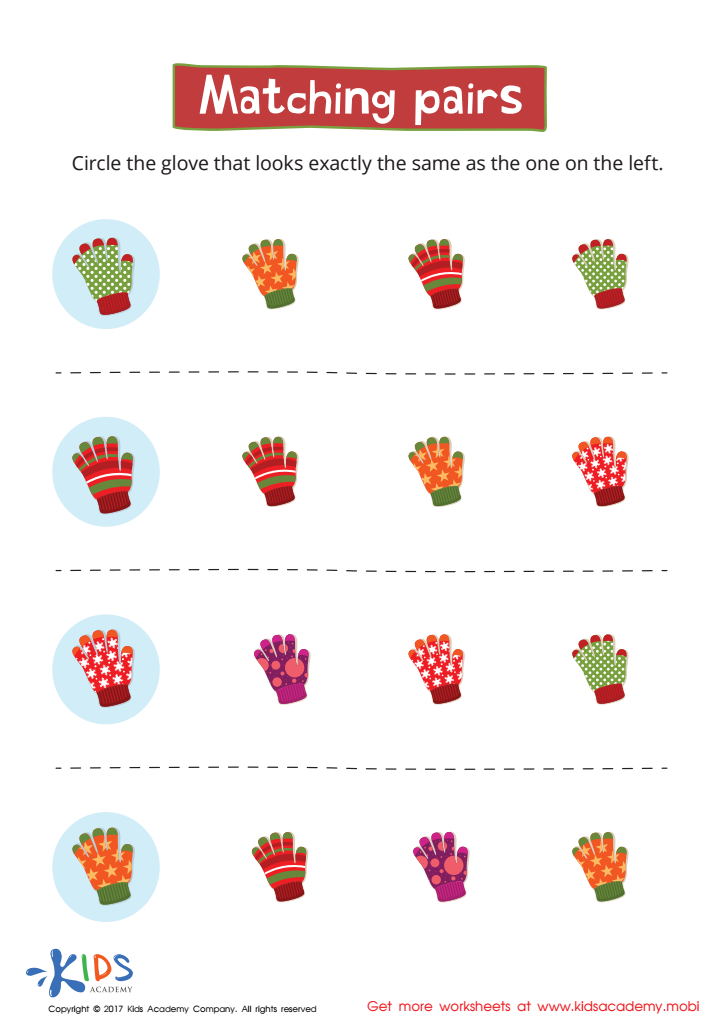

Matching: Matching Pairs Worksheet
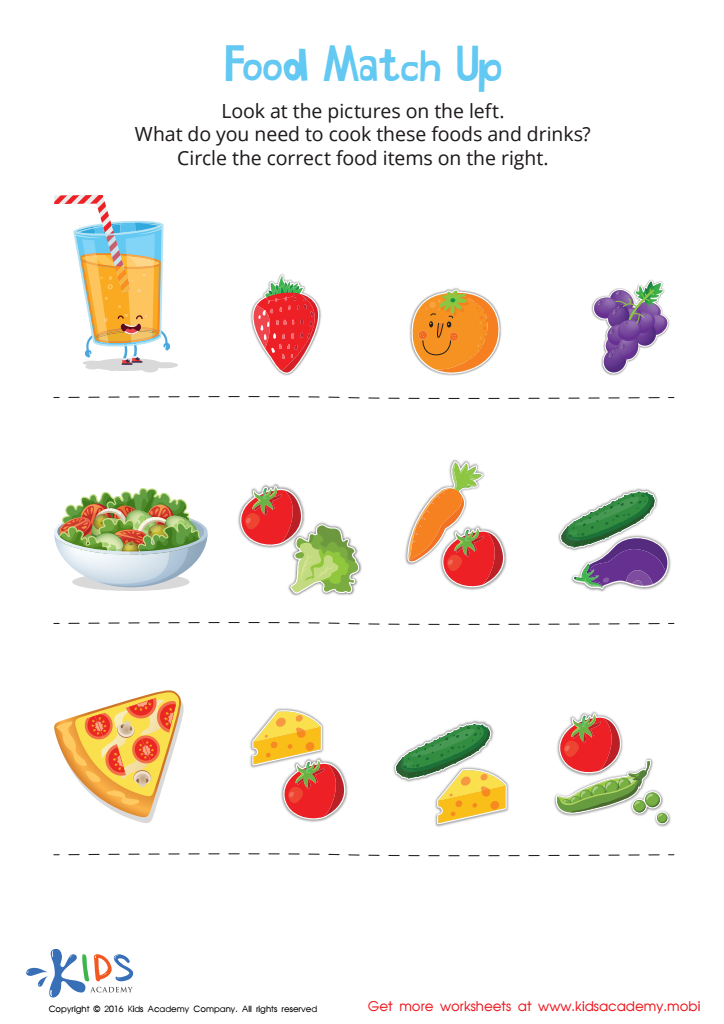

Food Match Up Worksheet
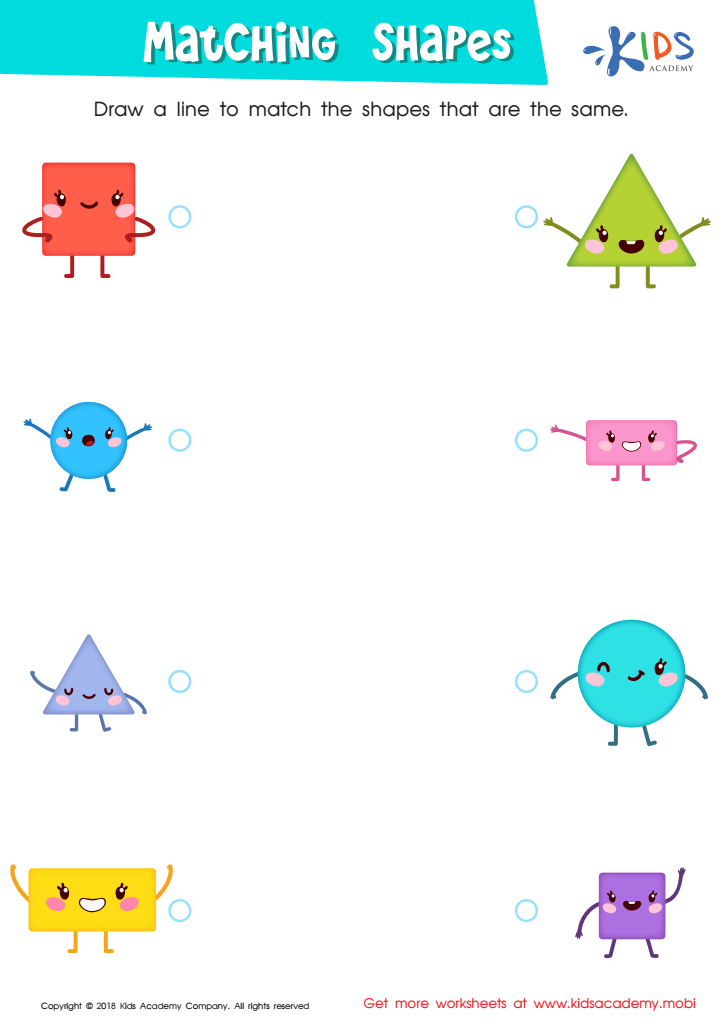

Matching Shapes Worksheet
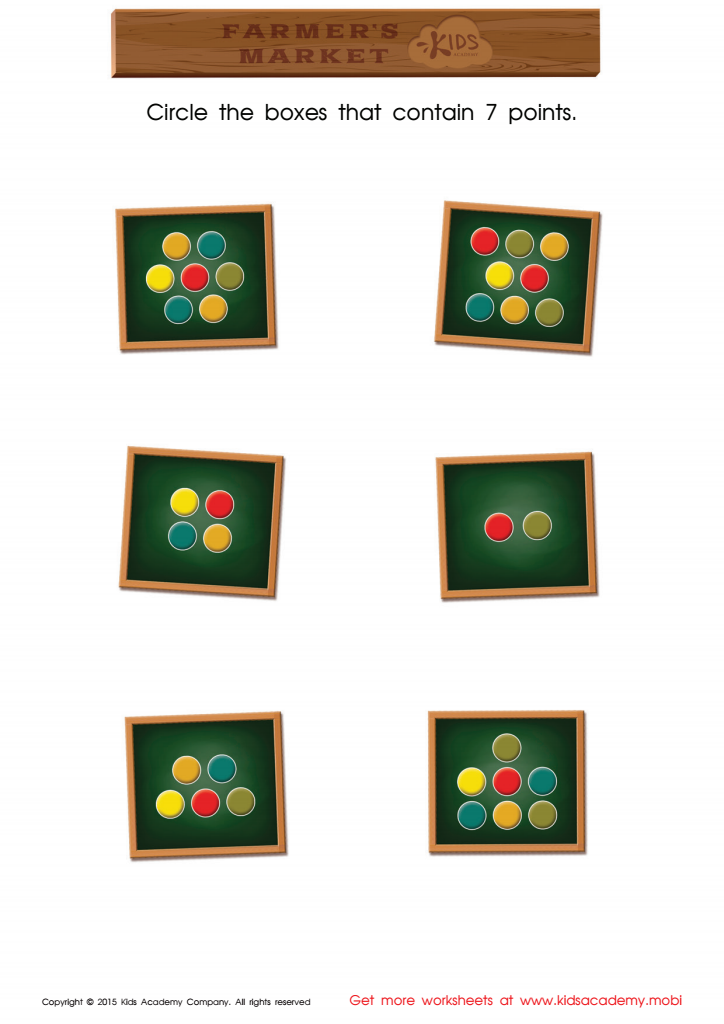

Count and Match Points 7 Math Worksheet
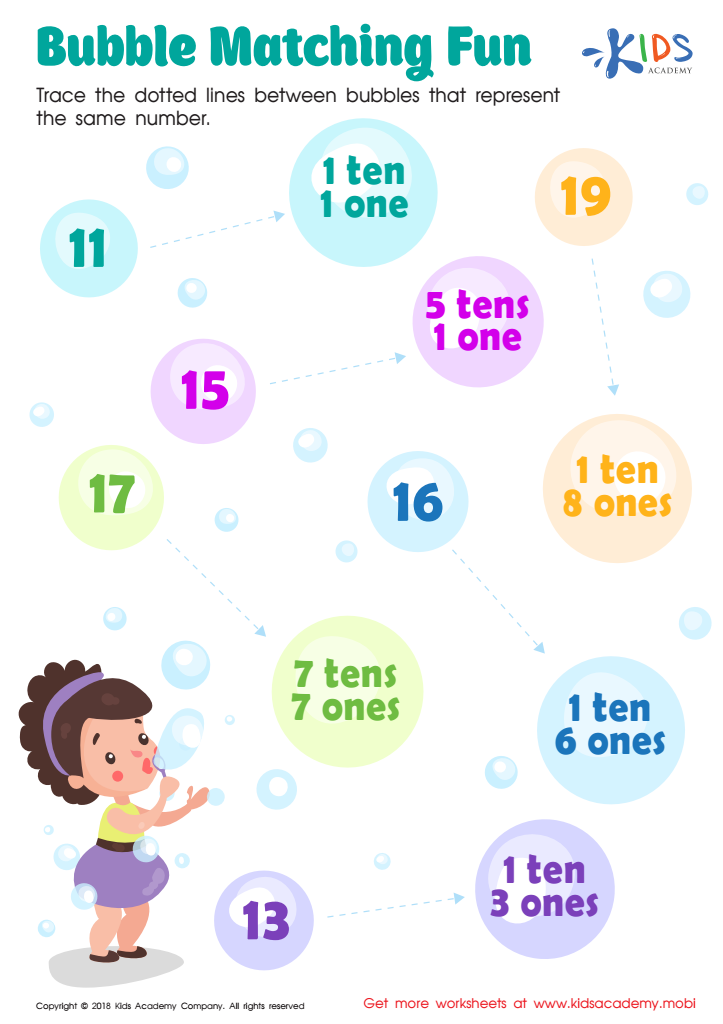

Bubble Matching Fun Worksheet
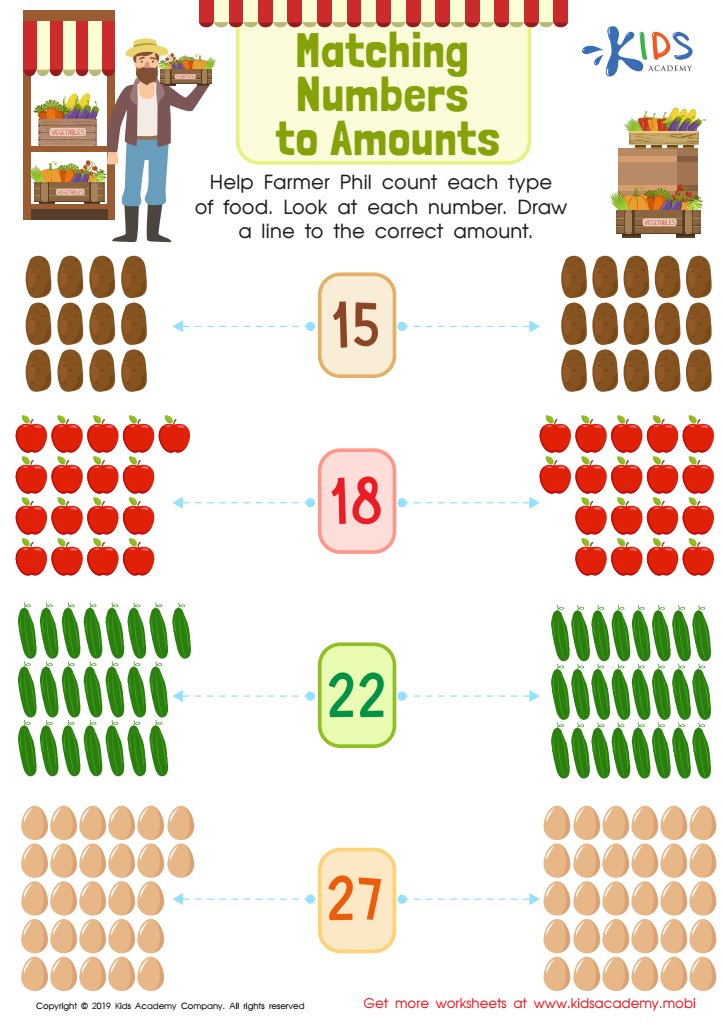

Matching Numbers to Amounts Worksheet
Parents and teachers should care about matching skills in Normal Math for ages 5-8 because these foundational abilities are critical for developing essential mathematical understanding and problem-solving skills. Matching involves recognizing relationships between different objects or concepts, which is crucial in early math education. Activities that promote matching skills help young learners establish connections between numbers and quantities, enhancing understanding of addition, subtraction, and patterns.
Moreover, matching skills encourage cognitive development. At this age, children engage in active exploration and learning, and matching exercises stimulate critical thinking and memory retention. These skills also promote visual discrimination, aiding in recognizing similarities and differences, which is essential in various mathematical contexts.
Additionally, mastering matching skills lays the groundwork for more complex mathematical operations later. When children understand how to match numbers to sets, they’ll find it easier to grasp multiplication and division.
Furthermore, engaging activities that focus on matching can foster a love for math by making learning interactive and enjoyable. Ultimately, parents and teachers play a pivotal role in nurturing these skills, ensuring kids develop confidence and competence in their mathematical abilities as they progress through school.
 Assign to My Students
Assign to My Students
